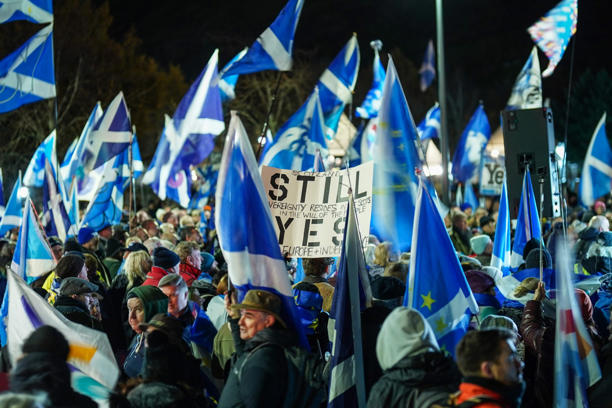The supreme court has ruled that the Scottish government cannot hold an independence referendum without the UK government's consent.
Nicola Sturgeon had planned to hold a referendum on 19 October 2023 but the supreme court ruled unanimously that she does not have the power to do so, stating that the issue is reserved to Westminister.
Court president Lord Reed said the laws that created the devolved Scottish Parliament in 1999 meant it did not have power over areas of the constitution including the union between Scotland and England.
These issues are the responsibility of the UK Parliament, he said, and in absence of an agreement between the two governments, the Scottish Parliament is therefore unable to legislate for a referendum.
He also rejected the Scottish government's argument that any referendum would simply be "advisory" and would have no legal effect on the union, with people only being asked to give their opinion on whether or not Scotland should become an independent country.
Responding to the outcome, Ms Sturgeon said she was disappointed but respected the ruling of the court, and stressed that the judges do not make the law and only interpret it.
She added: "That is a hard pill for any supporter of independence, and surely indeed for any supporter of democracy, to swallow."
The first minister told a media conference that a referendum remained her preferred option, but in the absence of an agreement the SNP would use the next UK general election as a "de facto referendum" in an attempt to demonstrate that a majority of people in Scotland support independence.
Scottish opposition leaders will refuse to engage with Nicola Sturgeon’s plan to run the next general election as a de facto independence referendum after the first minster said it was the only lawful way for Scots to express their will.
Read more at the BBC
We need your support
Sri Lanka is one of the most dangerous places in the world to be a journalist. Tamil journalists are particularly at threat, with at least 41 media workers known to have been killed by the Sri Lankan state or its paramilitaries during and after the armed conflict.
Despite the risks, our team on the ground remain committed to providing detailed and accurate reporting of developments in the Tamil homeland, across the island and around the world, as well as providing expert analysis and insight from the Tamil point of view
We need your support in keeping our journalism going. Support our work today.
For more ways to donate visit https://donate.tamilguardian.com.


